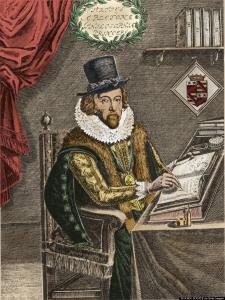What has happened to science writing? Not long ago it was the domain of intellectual scientists, well versed in philosophy and the humanities, who wrote to inspire the imaginations of readers. Now it seems like the market is flooded with books written by scientists with no interest in poetry or philosophy, books full of factoids to be used in online debates, but devoid of imagination. As our society’s conception of science gets more narrow and literal, so too does its literature about the subject.
The Heyday of Science Writing
Anthropologist Claude Levi-Strauss published Tristes Tropiques in the 1950s, his combination memoir and travelogue about his work among tribes in Brazil. The book is witty, poetic, and political. Levi-Strauss realizes that he can’t talk about the cultural fabric of Brazil (or humanity itself) without mentioning economic and political matters like colonialism and the slave trade. In addition, he defines his approach to science in a way that involves the observer; even when investigating an area’s geology, discovery changes the observer’s perspective in meaningful ways:
And sometimes the miracle happens. On one side and the other of a hidden crevice we find two green plants of different species. Each has chosen the soil which suits it; and we realize that within the rock are two ammonites — one of which has involutions less complex than the others. We glimpse, that is to say, a difference of many thousands of years; time and space suddenly commingle; the living diversity of that moment juxtaposes one age and the other and perpetuates them. Thought and sensibility take on a new dimension, in which every drop of sweat, every movement of muscle, every quick-drawn breath becomes the symbol of a story; and, as my body reproduces the particular gait of that story, so does my mind embrace its meaning. I feel myself luxuriating in a state of heightened perception, in which Place and Period make themselves known to one another and have at last a common language in which to communicate.
Science, Society, and the Humanities
In the 60s, paleontologist Loren Eiseley wrote books that described scientific inquiry in the context of other human endeavors intended to inform and entertain: mythology and poetry. Auschwitz and Hiroshima were still too recent for him to idealize scientific objectivity, so he wrote about scientific inquiry as the modern human’s mythic quest. Twentieth-century humanity has rid itself of fictional monsters, but we can still be haunted by the immensity of Time and our anxieties about the future. In The Unexpected Universe from 1964, he writes:
The archaeologist is the last grubber among things mortal. He puts not men, but civilizations, to bed, and passes on them final judgments. He finds, if imprinted upon clay, both our grocery bills and the hymns to our gods. Or he uncovers, as I once did in a mountain cavern, the skeleton of a cradled child, supplied, in the pathos of our mortality, with the carefully “killed” tools whose shadowy counterparts were intended to serve a tiny infant through the vicissitudes it would encounter beyond the dark curtain of death. Infinite care had been lavished upon objects that did not equate with the child’s ability to use them in this life. Was his spirit expected to grow to manhood, or had this final projection of bereaved parental care thrust into the night, in desperate anxiety, all that an impoverished and simple culture could provide where human affection could not follow?
In a comparable but more abstract way, the modern mind, the scientific mind, concerned as it is with the imponderable mysteries of existence, has sought to equip oncoming generations with certain mental weapons against the terrors of ignorance.
Stephen Jay Gould was perhaps the finest science writer who ever lived, an intellectual giant whose essays on the history and philosophy of science burst with references to everything from ancient poetry and opera to baseball and Disney cartoons. He realized that our scientific knowledge is all mixed up with folkloric elements that betray the cultural biases of the societies that contributed to it. Scientific inquiry can’t be taken out of the human and cultural context that produces it. In Dinosaur in a Haystack, he wrote:
I would not choose to live in any age but my own; advances in medicine alone, and the consequent survival of children with access to these benefits, should preclude any temptation to trade for the past. But we cannot understand history if we saddle the past with pejorative categories based on our bad habits for dividing continua into compartments of increasing worth toward the present. These errors apply to the vast paleontological history of life, as much as to the temporally trivial chronicle of human beings. I cringe every time I read that this failed business, or that defeated team, has become a dinosaur in succumbing to progress.
Dinosaur should be a term of praise, not opprobrium. Dinosaurs reigned for more than 100 million years and died through no fault of their own; Homo sapiens is nowhere near a million years old, and has limited prospects, entirely self-imposed, for extended geological longevity.
Honor the past at its face value.
Debate Culture and the Death of Science Writing
The resurgence of fundamentalist Christianity and creationism in the USA created a cultural atmosphere that politicized science. Evolution became a totem of liberal secularism, and science in general was fetishized as a tool of class and regional condescension. It didn’t help matters that in the 90s, there was a professional rivalry between scientists and philosophers that resulted in a distrust among scientists for philosophical, feminist, or postmodern approaches to scientific inquiry. Writers like Carl Sagan and Richard Dawkins popularized a simplistic view of science as the Candle in the Dark: there is a clear demarcation between truth and error, science is the way to truth, and we need to get people and societies to appreciate this.
Needless to say, this mindset produces science writing that is mere polemic, with none of the artistic, intellectual, or philosophical depth of Gould’s writing. It’s best exemplified by Unweaving the Rainbow by Richard Dawkins, where he quotes poets simply to dismiss their scientific ignorance. Dawkins also spends an entire chapter excoriating Gould for errors in his book on the Burgess Shale; the hatchet job simply reeks of professional jealousy. Even today, a good decade after Gould’s death, Dawkins and Lawrence Krauss never miss an opportunity to revile Gould.
There are worthwhile science writers working today. Matt Ridley constantly finds ingenious ways to present scientific information: his Genome contained 23 chapters, one for each pair of chromosomes in the human genome. Carl Zimmer writes about scientific inquiry with great narrative skill: At the Water’s Edge described the paleontological and genetic discoveries that contributed to our understanding of how our ancestors emerged from the ocean (and some of our ancestors’ relatives made it back) as if he were writing a thriller.
However, much of what passes for science writing is two-dimensional hackwork that reflects its philosophically inert belief that (in the words of Lawrence Krauss, from A Universe from Nothing) “The universe is the way it is , whether we like it or not.” Even the titles show how little imagination is being exerted in these books: Jerry Coyne’s Why Evolution Is True is yet another anti-creationist polemic, a book-length rant no different from any released in the 90s on the exact same subject. Steven Weinberg’s To Explain the World is a Whiggish history of the development of modern science, with Weinberg explicitly denying that he’s obliged to treat the scientists and natural philosophers of old as anything except ignorant pre-moderns. The books are long on equations and great-men pop history, but there’s no understanding of the continuum between science and the humanities that informed the science writing of Eiseley and Gould. There’s no acknowledgment in any of these works that there are philosophical or feminist concerns about how we conceptualize science. For all their tributes to intellect and the Truth, there’s a very anti-intellectual slant to these books.
Who are your favorite science writers of the past or present? Are there any titles we should know about?















